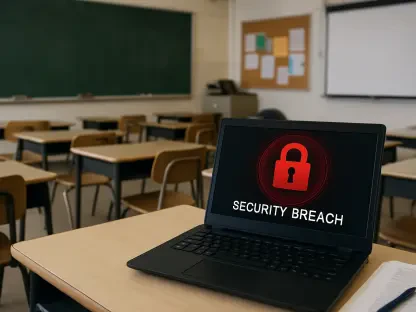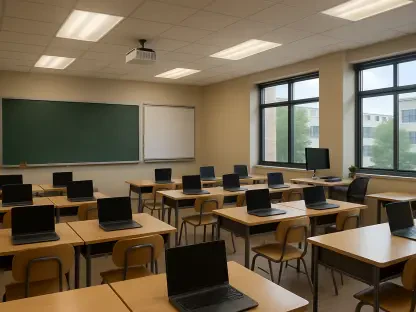Tennessee Weighs State Takeover of Memphis-Shelby County Schools
The state of Tennessee is considering a significant legislative move that could reshape the governance of the Memphis-Shelby County Schools, following the abrupt dismissal of its director, Marie Feagins, just eight months into her tenure. This bold initiative aims to address long-standing issues related to student performance and management within the district, sparking a heated debate among state representatives, local leaders, and the community.
Legislative Proposal for State Control
Drafting the Bill
State Representative Mark White, an East Memphis Republican and the chairman of the House Education Committee, is leading the charge by drafting a bill that seeks to place the Memphis-Shelby County Schools under a state-appointed management group. This proposed group, operating under the Department of Education, would take over the district’s administration for a minimum of two years. During this period, the local school board’s authority would be significantly diminished, relegating its members to an advisory capacity only. White’s rationale for this drastic measure is rooted in his perception of systemic failures within the district, manifesting in poor student outcomes and mismanagement, as evidenced by the recent firing of Feagins amidst numerous allegations.
White’s proposal has stirred considerable controversy, drawing sharp criticism from Memphis Senators and local leaders who perceive it as a direct affront to local autonomy and democratic governance. Senate Minority Leader Raumesh Akbari, alongside Senate Democratic Caucus Chair London Lamar, has vehemently opposed the bill, asserting that the state ought to focus on correcting funding inequities and making substantial investments to enhance the quality of education rather than undermining local control. They argue that such a takeover does little more than exacerbate existing tensions and fails to address the root causes of the district’s educational challenges.
Local Response and Concerns
The proposed state takeover has ignited a fierce backlash among local officials and community members, who view it as an overreach that threatens to dismantle local governance structures. Shelby County Mayor Lee Harris has been particularly vocal in his opposition, calling for a more collaborative approach that prioritizes the needs and well-being of the students over punitive measures directed towards administrators. Harris is actively lobbying against the legislation, urging state leaders to reconsider their approach and work alongside local stakeholders to find more effective solutions.
Critics of the proposed takeover argue that the state’s interventionist strategy overlooks the complexity of the issues faced by the Memphis-Shelby County Schools. They contend that the district’s struggles are symptomatic of broader socio-economic disparities and chronic underfunding, which cannot be resolved through top-down mandates alone. Instead, these leaders advocate for a comprehensive strategy that includes equitable funding, community engagement, and targeted interventions tailored to the unique needs of the district. By fostering a supportive environment, they believe that the district can achieve meaningful improvements in student performance and overall school management.
Underlying Issues and Challenges
Impact of School Closures
One of the driving factors behind the dissatisfaction with the current state of the Memphis-Shelby County Schools is the ongoing issue of school closures due to declining student enrollment. These closures have led to a series of unintended consequences, including increased instances of vandalism and the further deterioration of school facilities, which in turn have hampered the district’s ability to support potential charter school operations. The resulting disruption has compounded the challenges faced by the already beleaguered school system, creating a vicious cycle that critics argue must be broken to achieve sustainable improvement.
Despite these challenges, some, including Representative White, maintain that with a different management approach, the district has the potential to turn its fortunes around. He points to the dissolution of the Achievement School District, created to manage underperforming schools, as a cautionary tale. While its intentions were noble, it ultimately failed to deliver significant improvements in student outcomes. White argues that a more hands-on approach by the state, coupled with a thorough reassessment of resource allocation and management practices, could yield better results and offer students the quality education they deserve.
Opposition to the State Takeover
While proponents of the state takeover emphasize the urgency of addressing the systemic issues plaguing the Memphis-Shelby County Schools, opponents remain steadfast in their belief that the solution lies in empowering local leaders and communities. They highlight the importance of preserving local governance and argue that any effective strategy must involve those who are closest to the problems and most invested in the outcomes. These critics caution against over-reliance on external intervention, advocating instead for a collaborative approach that leverages the expertise and insights of educators, parents, and community organizations.
In the midst of this contentious debate, there is a shared recognition of the need for a more productive use of the district’s educational opportunities. While opinions diverge on the best path forward, the ultimate goal remains clear: to create an environment where all students have the chance to succeed. As discussions continue, it will be crucial for all stakeholders to navigate these complex issues with a focus on long-term, sustainable solutions that prioritize the interests of the students above all else.
Looking Ahead
Next Steps and Implications
The proposal for a state takeover of the Memphis-Shelby County Schools underscores the ongoing struggle to balance state authority with local control in the pursuit of educational excellence. As the legislative process unfolds, it will be essential to carefully consider the potential impacts of such a drastic measure on the district’s future. Stakeholders must weigh the benefits of state intervention against the risks of undermining local governance and community trust.
The outcome of this debate could serve as a precedent for how similar situations are handled in the future, not only in Tennessee but across the nation. Policymakers and educators alike will need to draw on the lessons learned from this experience to inform decisions that support the best interests of all students. The discussions surrounding this proposal highlight the complexities inherent in addressing educational disparities and the need for innovative, collaborative solutions.
A Call for Collaborative Solutions
The state of Tennessee is contemplating a major legislative change that could transform the governance of Memphis-Shelby County Schools. This comes on the heels of the sudden firing of Marie Feagins, the director of the district, who was let go just eight months into her position. This ambitious plan seeks to address deep-rooted issues concerning student achievement and administrative management within the school district. As a result, the proposal has ignited a lively and intense debate among state lawmakers, local officials, and members of the community. Stakeholders are divided over the potential impact of such changes, with some advocating for the need to improve educational outcomes, while others worry about the potential loss of local control. The ongoing discussions reflect the complexities of balancing state intervention with community autonomy and the desire for effective educational governance. As Tennessee moves forward with this proposal, the future of Memphis-Shelby County Schools hangs in the balance, with outcomes that could resonate far beyond the district.









